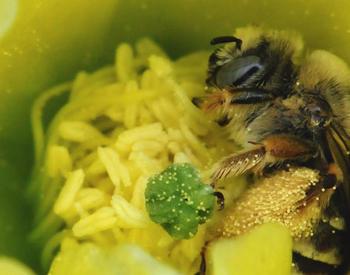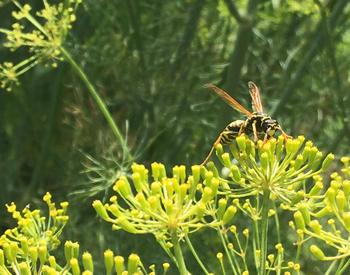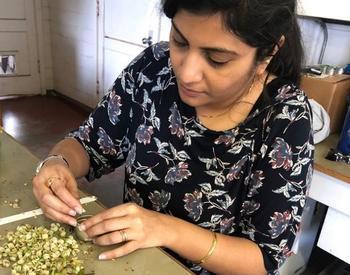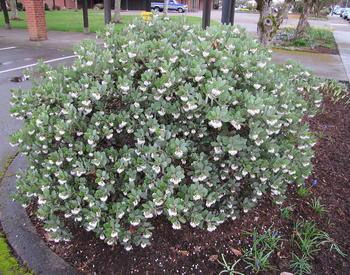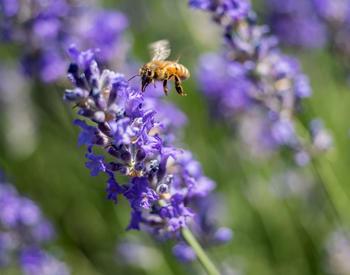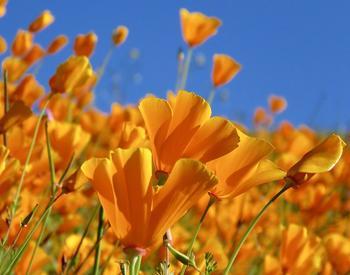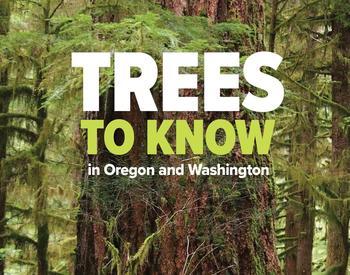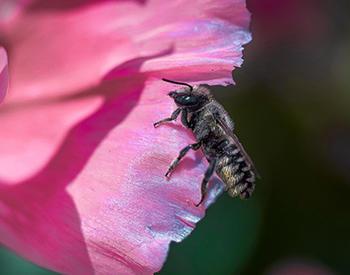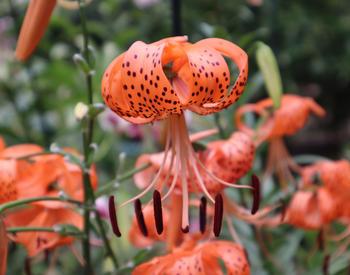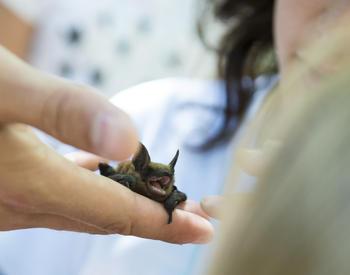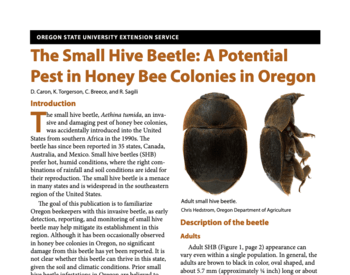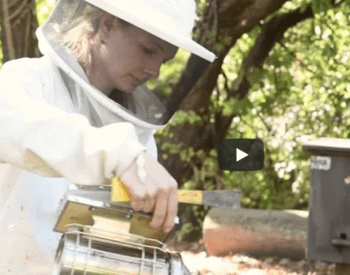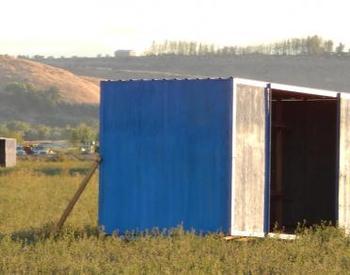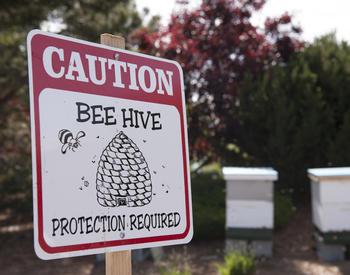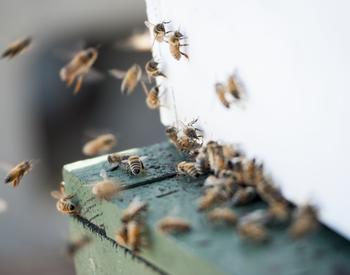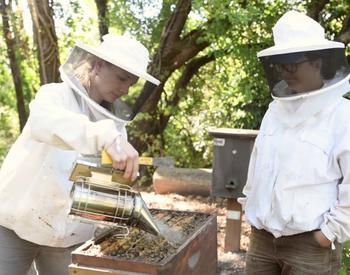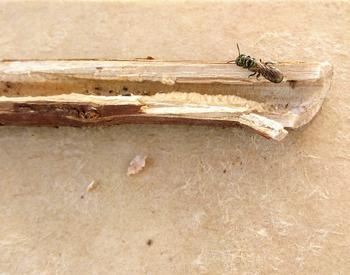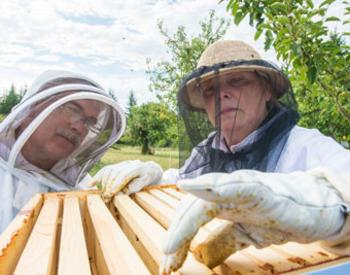Transcript
239 - Oregon Master Beekeeper Field Day
Andony Melathopoulos: [00:00:00] From the Oregon State University Extension Service, this is pollination, a podcast that tells the stories of researchers, land managers, and people like you who are making bold strides to improve the health of pollinators. I'm your host,
Jennifer: Dr. Adon Opolis, associate
Andony Melathopoulos: Professor of Pollinator Health in the Department of Horticulture.
Folks, it's a wrap. National pollinator week is over and I'm. Hope that you had the opportunity to enjoy or maybe even head up one of the thousands of events that took place across North America celebrating our pollinators. I had a great week. I was in Newport where I was part of an event by hosted by US Fish and Wildlife Service protecting the Oregon Silver Spot.
A threatened species, a federally. Listed species that we have on the coast of Oregon that they're trying to recover. And then I had a great day in Este[00:01:00] talking to woodland owners about creating pollinator habitat. And I ended things off for the first time that I've been here at osu, at the Oregon Master Beekeeping Field Day.
I don't know why I've never been. I do know
Jennifer: cuz it's
Andony Melathopoulos: always on national pollinator week. I'm always doing something on that Saturday, but this week I was free and I was able to attend the field day and it was really spectacular. So I'm gonna bring you some voices from that field day. The really wonderful, we have some surprise parts where somebody learns this is like this big reveal that they had passed their exam because, Part of the field day in the morning is people who are going through the program take their tests.
We hear about people who are just considering the program. We hear from Dr. Ramesh Sigil who founded the program, and Jen Larson, who coordinates it, who also coordinates the Master Tologist program or Wild B program. Anyways, it's a great vignette of what that field day is, and if you've been thinking about.
Master beekeepers. It gives you a [00:02:00] sense of what the program is about. So this week we're gonna go to Corvallis location of the mothership this week on pollination.
Jennifer: Alright, Dr. Eely welcome pollination
Ramesh Sagili: again. Yeah, thank you. I always a pleasure to be on this. We're at the Oak
Jennifer: Creek Center for urban Horticulture. Yeah. For Urban Horticulture. And today's the Master Peak Keeper Field Day. Yeah.
Ramesh Sagili: As we do every year. Yeah. At the same time in June. Yeah.
Jennifer: Every time, every year. And so tell us about this day. Like what, what's
Ramesh Sagili: gonna happen? So here we test so we have a three levels in the Master beekeeper program, there's a certificate level, then they have a journey, and then a master level. So we test, this is an opportunity for them to come and get tested.
So we have a field exam. There's a disease diagnostic exam. Oh, that's what you were doing this morning? Yeah. Yeah, so we, they have an opportunity to showcase their learning or the knowledge that they have gained over the years and demonstrate their expertise. And and that's what we test here
Jennifer: on this day.
So this morning, I guess this [00:03:00] is before the field day people, it had people who are coming to the next level. And that you, I saw you there was like, it was like an instructor and the person being tested and you had little sheets. You were grading them.
Ramesh Sagili: Yeah. So we have a grading sheet.
I know. I tell students, don't be nervous. This is not some college exam that you're taking. It's fun. It's a learning experience as well. Yeah. Even if you don't do well this year, Then you know what you are lacking and you can hone your skills on that and then come back next year and get to know.
We take a lot of pride in the Master Beekeeper program. We want to send people as our ambassadors that can do well and be a resource for others that want to learn bees or have interest in beekeeping. So I think it's a neat opportunity for them to get tested. And after this, yeah, we have a field day, as you said, to demonstrate other things that people want to see, and that's gonna be who
Jennifer: comes to that.
So in a, and this is gonna start in, oh geez, almost like 20 minutes from now. Yeah. What who comes
Ramesh Sagili: to that? So these are also all Master beekeeper registration. Are the people that are registered in the Master beekeeper program at different [00:04:00] levels from certificate to. Journey to master. So they all get an opportunity, an additional opportunity to look something in the field because June is a prime month for beekeeping, right?
So they get to see some diseases in some hives. They will see, get to see how mites are evaluated. And I know you're doing a cool thing about culling frames where they can use some frames and throw some of them based on their condition, whether they've been used for too long or there is any pesticide accumulation.
So these is an opportunity for them to learn some additional things that they might not have seen in their hives in the past.
Jennifer: So
Andony Melathopoulos: I think
Jennifer: we were just walking to this shaded spot. Oak Creek is such a great place. There's so many bee plants. Planted around here. You were talking about the start.
It's 11 years or so since it was started. Can you tell us a little bit about the
Ramesh Sagili: beginning days? Yeah, no, that's a great question and I really am proud of the program that we have now. And so when I came to osu, there was no master beekeeper program here. There were probably six or seven other programs across the nation as you have been into AP culture for a [00:05:00] while.
So we thought there was a need as well. I was hired to do predominantly research and have a 30% extension appointment as well. But then there was such an enthusiasm for honeybee as HoneyBee's and AP culture in general. So there were questions from public. They were just barely interested in bees or someone wanted to get into bees.
I was getting a lot of questions. Even Carolyn, one of our lab members was getting a lot of questions. So we thought maybe this is a time when we should start a program. We didn't have any funding right. For that program so we had to start from scratch. So we got together with the committee.
So Oregon State Beekeepers Association has been very instrumental in this process. Without their support, I don't think we'll have this program as we have today. So it's a collaborative effort between Oregon State Beekeepers Association and Oregon State University Honey Bay Lab. So we have probably the people that have gone through the program, we estimate about 2,500 at this point.
2,500 people. Yeah, it's an impressive number. And again, I really want to thank the committee that we had initially [00:06:00] that initiated the process, including the Oregon State Beekeepers Association. And of course Carolyn has been fantastic. She was the lead initially, and now Jen Holt. Who is doing an incredible job as well.
So she has carried forward that program. So yeah, it's been 11 years and yeah, I'm really thrilled to see 2,500 more people gone through the program. And and I talk to them often not as much as Jen or Carolyn talks to them. But yeah, I always hear a lot of positive feedback and I think I, we take pride in, it's one of the top programs I would say, if not the top one.
With the mentor-mentee relationships, that's a unique part of Master Beekeeper program we have is many other programs. You just take one or two classes you go online and take a class. Yeah, take an exam and then you pass. Yeah. But the uniqueness here is the mentor-mentee relationship. Again, I'm very indebted to the, all the volunteers.
Because this is not a program that gets some huge funding from the state or the college. So we have been getting some grants, writing grants, and getting some money, and then some money comes through registration of the students as well, so that all the monies that go [00:07:00] into this incredible program that we have, and So I think, yeah, it's been a really a pleasure to have this program and I hope it'll go another 20 years like this.
Jennifer: I'm sure it will. Thanks for taking time on this very busy day.
Ramesh Sagili: Thanks, Anthony, again, always a pleasure.
Andony Melathopoulos: This
Jennifer: is the busiest person today. Hi. Hi Jen. How are you doing? Hey, Adon. I'm doing great. So Jen tell us a this is a big undertaking once a year. Once a year. It's yep. What are people gonna be learning today? What are some of the key things?
Jen Larsen: We have all of the different hives here open for people to see and visit.
And the exciting thing about this year that I'll say upfront is that it's the first year we've invited our lower level students. Oh, getting started. An apprentice student. So some students have never seen a colony open before in general, so this is gonna be a big day for them. We also have a PhD graduate student talking about her pollinator plants and her study trials that she has here.
We also have Steve Gomes here talking about his [00:08:00] bumblebee. Relocation and nest collection endeavor. So it's not just honeybees. Today, we're actually covering lots of aspects of pollinators.
Jennifer: That's, and that, so it's a lot of new things to add in one year. This is lots of new, this is
Jen Larsen: lots of new things all at once.
And we're just gonna go with it today.
Jennifer: It's really fun. And I guess this morning we we just talked to Dr. Sigly the the, there was the. The tests and now I guess in a few minutes, and that's why this is gonna be a very quick interview of people are gonna start pouring in and how many people are expected today?
Yeah, I'm
Jen Larsen: hoping that about 65 or 70 show up Uhhuh. Yeah, that's in addition to the people that took their tests this morning. So it's a busy day.
Jennifer: Okay. I'm gonna let you go and thanks so much for taking the time. Oh and just quickly how do people get into the program?
Tania: You can visit our
Jen Larsen: website.
You can search for a master Beekeeper, Oregon, through OSU extension and the getting started program. The entry level is open to anyone and you can register anytime.
Jennifer: Open enrollment. Fantastic. Visit the website. It's gonna be in the show notes. Thanks. Hi Jennifer. Can you pronounce your last name? For me, it's all awful. Okay. [00:09:00] And you we talked to Dr. Sigly earlier and we talked about before the field day starts, people get evaluated. This is for the journey or master level. So master level, you're going for the master level. Yes. Can you tell us a little bit about that decision to go make the jump?
Why did you not wanna just remain a journey level
Andony Melathopoulos: beekeeper?
Tania: There was, it was just a lot of fun to come down here and learn about the bees. And I enjoyed the journey level program and I wanted to know more. I felt like there was so much more to understand Uhhuh after the journey level program and I had built a relationship with the people in the program.
Jennifer: So this is the first, tell us a little bit about the master level.
What do you have to do? Is it coursework
Tania: or, so there's a little bit of both. You need to do some extra service projects, about a hundred hours uhhuh. So it's definitely a jump from the journey level of 30 uhhuh. There is a project that you work on, either a university sponsored project or your own project.
So I'm working on the pollen nutrition study with Ramesh. Oh wow. Giving some pollen samples so that they can evaluate how much nutrition is in for the bees Uhhuh you have to do some exams. So today I did the disease. Field [00:10:00] exam. And I also in September we'll do the lab exam uhhuh, so looking at diseases, and then you come up with your own special project and there's a research evaluation.
So it's much more comprehensive than the journey. It's a lot more comprehensive for sure.
Andony Melathopoulos: But like you said at the beginning, it's, it is an opportunity to
Jennifer: really
Tania: learn. Yeah, definitely. Because one of the parts about the master level program is you get to do a specialty. So you get to have your own specialty that you spend time researching.
And so that's, Going a little bit further than just what's presented to you. You get to explore
Jennifer: personal interest. Have you decided what your specialty's
Tania: gonna be? Not completely. I'm really interested in sound vibrations with the bees and how that relates to some of the spiritual energy that comes from the bees.
So taking it beyond just the scientific into kind of another more metaphysical realm, Uhhuh. But I haven't quite figured out how that's gonna fit with the Scientific program here. So I'm trying to explore that a little bit. That's how I've come up with a sound
Jennifer: vibration. I am so excited to see how that turns out.
Yeah, me too. But just maybe conclude. Tell us a little bit about what happened on the the disease exam.[00:11:00]
Tania: I was very challenging because I got presented with a nuke and it had a European fbr Uhhuh, and I have never seen the European foul brood didn't look like any of the pictures that I had in the books.
Yeah. And I wasn't quite sure about whether or not that, Was actually what I was looking at. So I think I misidentified it as only having mites. I suspected maybe European Fabry, but it wasn't a solid I know that this is a European Fabry, so I'm not sure how I did because it's, that's the benefit of being out in opening up different hives as you get to see things that don't look like the textbook and they don't look like what you've heard, and you actually get to see something that you haven't seen in your own apiary.
Unfortunately, it was on a test day. I wish I. Seen it in a different day. But it was really interesting just to
Jennifer: see that, I suppose that is what the master level is about, being able to generalize and be a resource for people who, not just your own beekeeping.
Andony Melathopoulos: Your own colonies, but to be able to help
Jennifer: people with various
Tania: colonies.
Absolutely, yeah. Like you have a wide range of knowledge and if even if you don't know what you're looking at, you at least know how to get the information to confirm it. So [00:12:00] we did have a test available. We did confirm it, but yeah, that's exactly, that's a good summary. Excellent.
Jennifer: Thanks for taking the time to talk with me.
Thank you.
Andony Melathopoulos: All right,
Jennifer: Morris, how are you doing? I'm doing
Morris: good. Today's a beautiful day, and then any day playing with bees is a good day.
Andony Melathopoulos: It is a good
Jennifer: day. It's a beautiful day. And I guess we were talking with Dr. Eely earlier and he was talking about the real unique part of the Organ Master Beekeeper program is the mentors.
Ah, and you've been a mentor Probably since the beginning. Very beginning for sure. So tell us what mentorship what mentorship. Why is it such an important component of the program?
Morris: I think it's an important part of the program because it's a hands-on opportunity to work with somebody who's already made a bunch of mistakes and is hopefully now corrected those mistakes and is happy to share that with other students.
I think it's, I think it's so much more personable than watching a video or the [00:13:00] worst case scenario reading a book, which is how I learned. It was before the computers, believe it or not, but but I really believe in it strongly. Plus I enjoy teaching. So for me it's a perfect fit and hopefully it is for the students
Jennifer: as well.
What do you think Know people who are in the program. And thinking of going up the levels and considering mentorship, what are some of the, what do you think makes you effect, makes an effective mentor in the program? I
Morris: think empathy. Being in a situation before where there were.
They were curious about bees and they wanted to know more about bees, but they didn't really have somebody that was into it uhhuh somebody they could talk to. And I think that's the main advantage is somebody they can
Jennifer: commiserate with. I guess it's like remembering that you were a beginning beekeeper at one point too.
Like it sometimes it, it could be going back a decade or so. Yeah. Okay. So tell us a little bit about the exam today. So you were invigilating some exams. I
Morris: was, yeah we were doing the disease testing or disease diagnosis. And it was pretty interesting cuz all these folks have obviously had a lot of experience.
Not to mention any names.[00:14:00] One person aced it. Oh, great. Another person did not uhhuh. So it's a difficult situation because like you can empathize with where these people are. They're obviously nervous and they want, they're highly motivated to pass it. And you gotta factor that into the decision and.
How many points to award or not award? So it's like when somebody makes a mistake, it's like you want to jump in there and say no. Try this for an idea. Or when you're looking for scales, maybe have the sun to your back instead of the sun in front of you. Which you can't do.
It's supposed to be a test where you're evaluating them. So I think it's like when I'm mentoring you want to step in and do it. And you can't, so it's probably the big, the biggest challenge.
Jennifer: Okay, that's fantastic. It's I think that is a kind of challenge cuz you know, I imagine, the empathy that makes you a good mentor.
At the same time you wanna make sure people have the skills when they pass, cuz they, they're gonna be in positions of kind of, Not authority, but they do carry the authority of being at the master level and Right. Someone to be trusted.
Morris: [00:15:00] And hopefully we're sending him out into the world and disseminating information to other people as well.
So they have to have it.
Jennifer: And one thing I didn't ask Jen, has there always been a field day from the very beginning? I'm
Morris: not sure about that. I think not. Yeah. Okay. Alright. But this is great though.
Jennifer: It's, and it's so great and this is such a great facility to have an event
Morris: at.
Yeah. I really like it. And it, a nice thing about this is also interacting with people who are in the phase of doing the testing, whatnot, and they're. They're nervous when they're doing the test and this is much more relaxed and you can sit down and talk to 'em and say, consider this next time.
Brush up on your disease identification brush up on the way you pull frames out of the hive. It's a more relaxed situation than I think it's more conducive to learning uhhuh.
Jennifer: Fantastic. Thanks for taking the time to talk with me. Okay. Alright. Thank you. Enjoy the day.
Andony Melathopoulos: So thanks.
You too.
Jennifer: Okay. Hi Tanya. How you doing? I am doing [00:16:00] fantastic. How are you today? I'm doing great. And you are in. I am in
Tania: the OSU master beekeeping program. I am in the second level, the journey level. Yeah. And today we're
Jennifer: taking our tests and I am really excited to tell you past both tests.
Andony Melathopoulos: I'm very excited to tell you that.
I'm very excited to hear
Jennifer: that. I'm glad I caught that on air.
Andony Melathopoulos: That is the best piece. All summer. That's my summer
Jennifer: right there. Tell us how you prepared for the exam. How you, how did you get to this victory?
Tania: Oh my goodness. I've been studying a lot, Uhhuh. Cause there is a lot of material that, that you need to cover.
So of course I went through all the material within the program. Yeah. Which is two books. Two full books textbooks. All the videos that we have. Uhhuh, I did cue cards for myself. I've taught all my friends and family
Andony Melathopoulos: the cue cards and repeated them over and over.
Tania: And I've been volunteering with a couple of different apiaries to just get my form [00:17:00] inspecting the hive.
Just a really good form and learning from as many beekeepers it's, I
Jennifer: can. What
Andony Melathopoulos: advice do you have for people who are
Jennifer: going up for the tests?
Tania: Love what you're doing. Yeah, do it. Love. There's a lot to learn and there will always be a lot to learn, but if you're having fun, it makes it so much easier and enjoyable.
It, we're doing this for fun. So enjoy every minute of
Jennifer: it. On behalf of the thousand listeners or so of pollination, congratulations. Thank you so much. Thank
Andony Melathopoulos: you so much. Thank you so much for listening. Show notes with links from each episode are available at the website pollination podcast dot Oregon state.edu.
I also love hearing from you, and there's a form at the website where you can pop in and say hello and give me feedback. If you wanna support the show, remember to leave a rating on iTunes, Spotify, a, whatever podcast mothership you use. And finally, if you have the means and you wanna help support my lab's effort to document B Biodiversity organ visit.
Oregon be atlas.org and follow down to the donate button [00:18:00] where you can make a tax deductible donation to the Jerry and Judith Paul native pollinator endowment. Every little bit helps. See you next episode.
Beekeeping takes a lot of training and mentorship. In many states, the place to learn the finer points of this trade is in state Master Beekeeper programs. We hear about the Oregon program through its annual field day.
